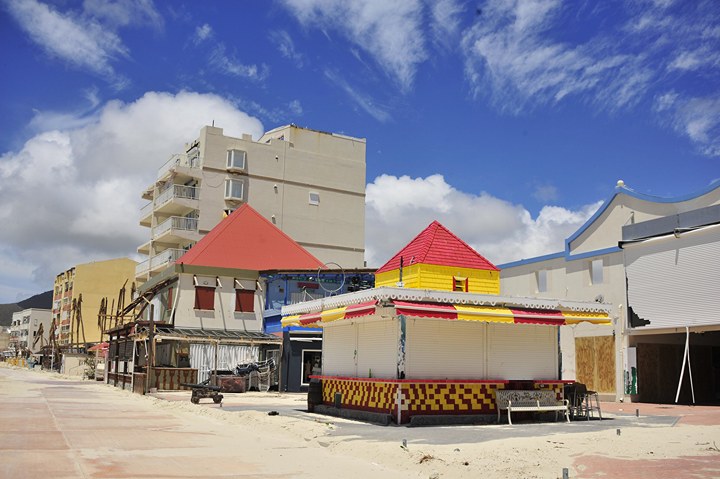Government stonewalls questions about responsibility for Hurricane Irma looting

PHILIPSBURG – The White and Yellow Cross Foundation’s attempts to get answers from the government about who is to blame for the large-scale looting that occurred in the wake of Hurricane Irma in September 2017 have been stonewalled by the government with non-disclosure arguments. The foundation posed 84 questions in three separate letters – sent between December 8, 2017 and January 16, 2018, basing its right to get answers on the Freedom of Information Act (landsverordening openbaarheid van bestuur).
The foundation posed questions about military assistance, the deployment of the police and about more general hurricane-related matters. It is unclear when the government reacted to the foundation’s request; two letters are undated and only one – sent by Minister of Justice Cornelius de Weever – is dated January 25, 2019 – more than a year after the last request. The Freedom of Information Act requires the government to react within three weeks to requests for information, with the option of one extension of another three weeks.
The White and Yellow Cross Foundation is the owner of the St. Rose Arcade shopping center in Philipsburg. This center did not suffer a lot of damage from Hurricane Irma but the damages from large-scale looting were extensive. Hence the foundation’s attempt to obtain information about what the government did to maintain public order and to prevent looting. The question is whether the government can be held liable for looting-related damages.
In the first Freedom of Information Act-request the foundation’s attorney Pieter Soons notes that local attorneys were incapable of maintaining public order in the days following Hurricane Irma on September 6, 2017; “This while it became clear to everyone after Hurricane Luis that looting can occur after a monster hurricane.”
“The impression is that Dutch military were deployed too late during the passing of Hurricane Irma to assist the local police with maintaining public order. Many businesses suffered serious damages because the looters could have their way mainly undisturbed.”
The request for copies of all instructions issued to the military by the government, the minister of justice and the governor between September 1 and October 6, 2017, fell on deaf ears with vice Prime Minister Wycliffe Smith who signed the (undated) reaction on behalf of Prime Minister Leona Romeo-Marlin. “I am of the opinion that I cannot provide the answer to this question because it falls under article 11 of the Freedom of Information Act.”
The article the minister refers to regulates under which conditions the government does not have to release information.
Thus the foundation did not get an answer to its question: “Is it correct that the Dutch military at a given moment allegedly refused to obey orders or instructions from the local police?”
Based on article 11 of the Freedom of Information Act the government also refused to reveal documents and minutes of meetings related to the establishment of the state of emergency.
The foundation furthermore wanted to know whether there were concrete plans to prevent looting and which specific measures the government took to prevent looting. The government refused to answer these questions.
The answers the government did provide suggest that the Minister of Justice is politically responsible for the prevention of looting. Answering the question about the responsibility for this issue, vice Prime Minister Smith wrote: “The police, the military and all other investigators designated by the Minister of Justice were charged with maintaining public order and therefore also with the prevention of looting.”
In the mountain of questions the foundation sent to the government were requests for information about the country’s Disaster Plan, in particular about the sub-plans that fall under it. One such plan regulates “combating the source, effects and consequences,” a second one deals with “public safety and traffic circulation” and a third one is about “administrative matters.”
No cigar: while the (public) Disaster Plan functions as St. Maarten’s Hurricane Plan, its sub-plans are not for public consumption.
Among the many other questions is an interesting one: the request for copies of Whatsapp and email messages sent and received by prime minister William Marlin between September 1 and October 6, 2017. A court in the Netherlands ruled in November 2017 that these messages fall under the term “document” mentioned in the Freedom of Information Act.
But the government refused to provide the information, insisting that it falls under the exceptions mentioned in article 11 of the Freedom of Information Act. “The (Dutch) freedom of Information Act is about a different society and a different organization of the government.”
Justice Minister Cornelius de Weever writes in his letter dated January 25, 2019, that all information that has not already been made public, cannot be made public based on the same article.
“Information is not provided if it could damage the safety of the country. That is the case here. Providing information could harm safety when it becomes public and can be used against the police in the next emergency situation.”























